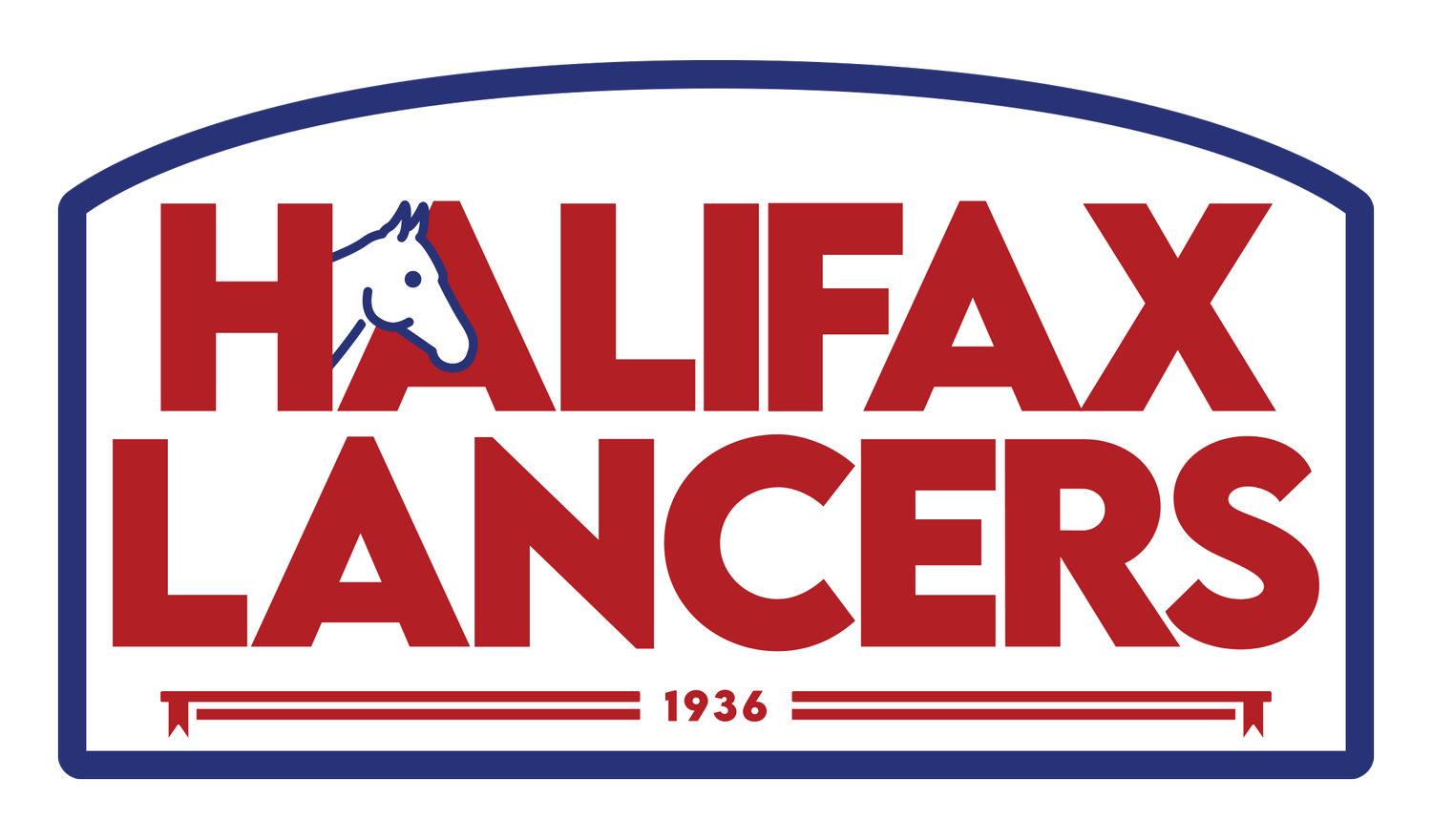Therapeutic Riding
One of Canada’s Oldest Therapeutic Riding Programs
Join the Waitlist
If you or a person you know would benefit from joining our therapeutic riding program, please complete the following waitlist form. Once we prepare to open registration for the next session, we will contact you if there is space for you to register and will determine whether the riding program is a suitable match for you. We do request a referral from a medical professional and payment at the time of registration.
To join the waitlist, click the button below!
Our History
The Halifax Lancers has been home to a therapeutic riding program since the late 1960s when Dr. Crosby and Dr. Grant initiated a riding program for children from the Children’s Hospital and the School for the Blind. We continue to be affiliated with the IWK, and also offer horseback riding to other members of the community with disabilities.
Our Program
Our therapeutic riding program is run by volunteers. We carefully select all of our horses and ponies, based on their temperament and conformation. They are then given additional training to familiarize them with the various circumstances that may arise and the adaptive equipment used in our therapeutic riding program. We provide ASTM approved riding helmets and other equipment beneficial for various abilities.
The Lancer Therapeutic Riding program usually runs twice a year in six-week sessions (September-November and May-June). Each session has a Friday afternoon and Sunday morning time slot and participants are assigned a lesson slot on either of these days according to a multitude of factors. Lessons are 45 minutes long and are guided by an instructor, our therapeutic riding co-ordinator, and a team of volunteers.
Benefits of Therapeutic Riding
Therapeutic Riding can help improve the physical, mental, emotional, and social well-being of most people with disabilities. Riding for these equestrians can be a challenging and invigorating form of exercise and recreation that gives the rider a sense of accomplishment and increased self-esteem. For individuals with disabilities that affect mobility, the horse provides freedom of movement and independence from assistive devices such as wheelchairs and crutches. The physical benefits include improvements in balance, and coordination, and an increase in agility because of the mobilization of stiff joints and strengthening muscles. The social, emotional, and mental benefits include improved communication, focus, self-esteem, and confidence.
How You Can Help!
Become a Volunteer
We provide training
No horse experience is necessary but it is an asset
Must be aged 16 or over
Provide Financial Support
Sponsoring a child to ride
Providing upkeep for a horse/pony
Organizing a fundraising event
Donating to the general operating costs
To register to volunteer for the spring 2024 session, click the button below!
Hear what our volunteers have to say…..
Who Can Participate?
Our program is offered to any person over the age of 5 with diagnoses such as, but not limited to:
Spina Bifida
Downs Syndrome
Cerebral Palsy
Multiple Sclerosis
Traumatic brain injuries or stroke
Hearing and Visually Impaired
Autism Spectrum Disorder
Neurological disorders
Learning disabilities
Mood Disorders
Anxiety Disorders
Requirements for the program include the following and are for the safety and overall health and wellness of the rider, staff, and horses. All potential riders will be brought in for a meeting and assessment before joining the program.
Being above the age of 5
A medical referral
Sitting balanced in the saddle
No involuntary dismounts
Working towards a set of goals
Other requirements are outlined in the waitlist form
Impact Statement
Join Halifax Lancers in building better lives through horses. Contribute your skills, passion, and time to the Lancer Therapeutic Riding program which, established in the 1960s, is one of the oldest in Canada. Horses are powerful therapy animals due to their empathy, calming effect on humans, and ability to attune to human emotions and communicate non-verbally. The goal of the program is to improve and maintain riders’ overall quality of life through the use of therapeutic modalities and to improve and maintain riders’ physical, social and cognitive wellbeing. Roles include in-barn and in-arena volunteers, volunteer coordinators, as well as cognitive and physical health professionals. Each six-week session, which runs in the spring and autumn, consists of weekly lessons on Friday afternoons and Sunday mornings.
Our accessible ramp used for mounting and entrance into the arena





